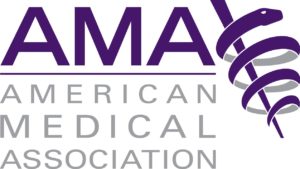posted 5-16-2018
 Sensing a gap between how physicians are educated and the future needs of the U.S. healthcare system, the American Medical Association in 2013 launched its “Accelerating Change in Medical Education” initiative. The association awarded grants to 11 medical schools to fund innovations in medical education, and then expanded the program in 2015 to an additional 21 schools. Repertoire reported on these initiatives throughout 2016 in our “Tomorrow’s Physician Customer” series.
Sensing a gap between how physicians are educated and the future needs of the U.S. healthcare system, the American Medical Association in 2013 launched its “Accelerating Change in Medical Education” initiative. The association awarded grants to 11 medical schools to fund innovations in medical education, and then expanded the program in 2015 to an additional 21 schools. Repertoire reported on these initiatives throughout 2016 in our “Tomorrow’s Physician Customer” series.
The AMA has announced that the first class of medical students exposed to these new ideas has graduated. Will they carry into residency, and then into practice, the lessons they learned?
Susan Skochelak, MD, MPH, who is AMA’s vice president of medical education, believes that AMA has stimulated a re-imagining of medical education. In addition to chemistry, anatomy and biology, the students at these 32 schools were exposed to concepts such as population health, leadership, teamwork, critical thinking, lifelong learning, chronic care management, high-value care, and the impact of education, poverty and malnutrition on health.
Some learned how to examine large data sets for clues to improving care to patients in their area. Others developed competency in the use of electronic health records. And others learned how to make the transition from “keepers of all knowledge” to willing health partners with their patients.
“From the start of the initiative, our goal has been to spread the work done by the consortium members to bring about systemic change throughout all medical education,” says Skochelak. “And their innovations are spreading beyond the consortium.”
Not too long from now, Repertoire readers will come across these young doctors on their sales calls. These doctors will probably think and act differently than those of 10 or 15 years ago. Will you be prepared to meet them on this new playing field?
